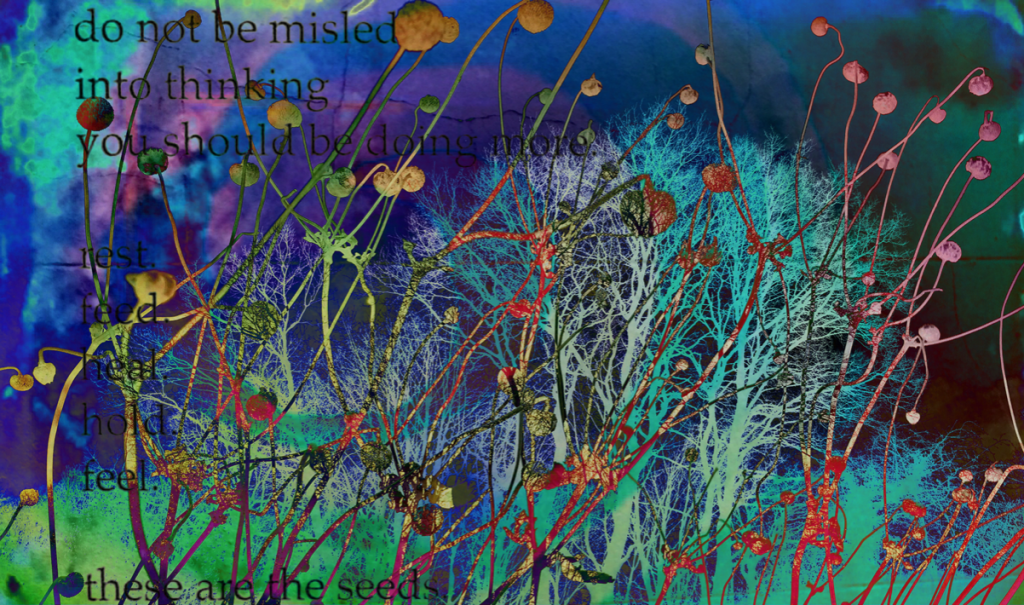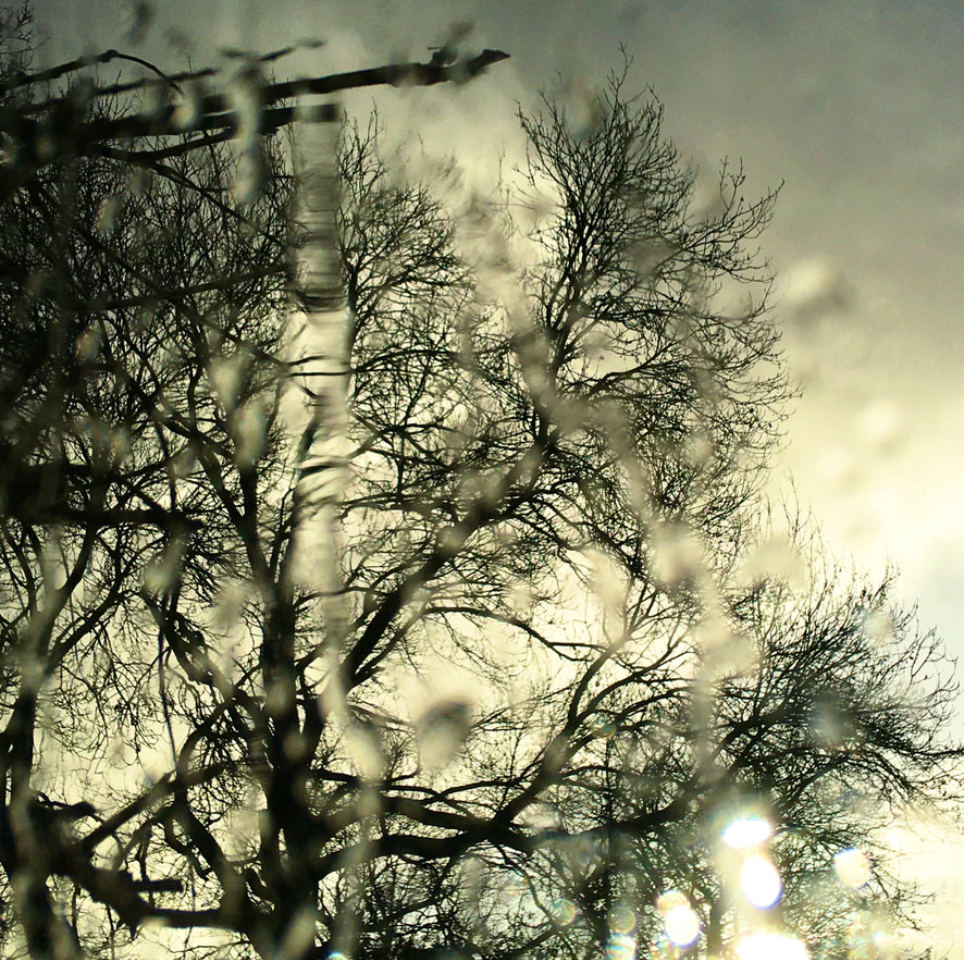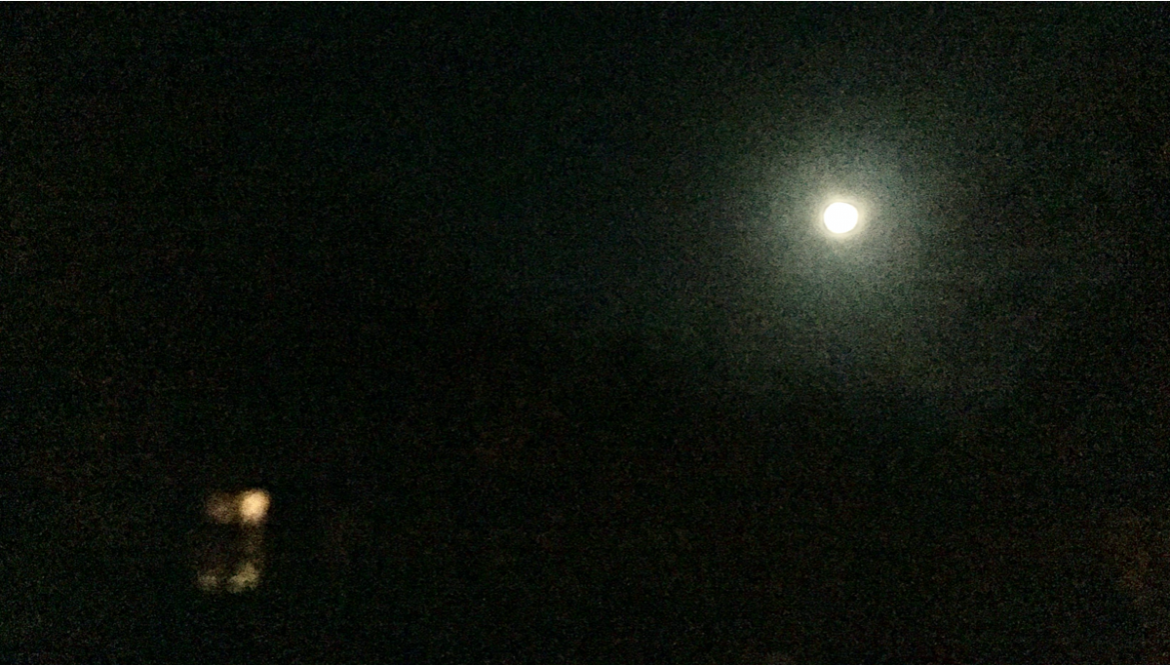post and all images by Kate Kennington Steer,
I feel in a funny-old place, very in-between things and unsettled. Uncomfortable in my skin. Exhausted. Depleted. And I am out of step – the world around me is about to open up again – more than one set of Covid restrictions being lifted coinciding neatly within the orbit of vernal equinox, and new life breaking through and budding from the earth beneath my window. Must I really drag the bottom of my murky pool to find the energy to fuel a ‘spring forth’?
I’m really not sure that, this year, I can face it.
Yet aren’t I often, nearly always, out of step with the rhythms of the world around me, living quietly as I do, in a mostly bed-orientated existence, normally (pre-Covid shielding) spending much of my time alone? My daily rhythms and routines are dependent on that day’s allowance of energy, so often I have to let go of whatever I might have hoped to accomplish, or planned to do, whether it’s studio time, a medical appointment, or sitting with a friend. And for a recovering perfectionist like me, it is incredibly difficult to keep at what will no-doubt be a life-long task: the soul-work of finding a balance between desire and acceptance; the heart-work of being silent and at rest, balanced against creative action without striving.

As I continue this journey of marking equinox, solstice and cross-quarter day for a year, (begun in May 2020), watching the growing and waning strength of light change the colours of familiar objects around me, I wonder how this perception of light might help me listen to my empty, desolate, tired places within: the wilderness places, the desert places. How might light help me to listen, with renewed attention, but without force? Perhaps I need to keep watching Winter’s shadows a little longer? Is it possible for someone who longs to be up and making, to find the patience to lie ‘fallow’ a little longer?
And I have to laugh at myself as I write that last sentence, because what on earth do I mean by ‘fallow’? As I mentioned at Imbolc, during January and February it has been my huge privilege to be part of a community delving into an exploration of ‘A MidWinter God’ (with the Abbey of the Arts). This course brought the key concept of being ‘fallow’ to my attention, and it is a word that keeps returning to me. And how I need to keep hearing it! For example, one evening last week, at the end of what I was bemoaning to myself as a ‘fallow’ day (read ‘unproductive’ which is not the same thing at all!), I brought myself up short, stopped the internal whine and made a list of what I had done during that day between 9 am and 7:15pm. It read as follows (in no particular order):
- making an iPad painting of my discerning of ‘grief as a holy path’
- writing an extended prayer meditation on ‘grief as a holy path’
- typing up and sharing both of these with fellow pilgrims on ‘MidWinter God’ site
- 20 minutes Centering Prayer practice
- One hour writing an Imbolc piece for Image into Ikon blog
- making a poem for ‘poem-a-day’ project
- typing up poem (points 1-7 all sitting up in bed)
- 30 minutes painting new canvas – including standing and stretching
- cleaning brushes and palette on diary covers/ playing cards (as part of other projects/new beginnings)
- rest: lying down and watching sky for a while
- ink pen doodling letter X for illustrated alphabet project
- engaging in an extended WhatsApp text exchange (lying down)
- watching 3 minute FaceBook video (lying down)
- eating supper with my parents (wheelchair to kitchen and back)
- having a 20 minute drink & conversation with Dad before supper
- listening to the first two songs of a NineBarrow concert on YouTube
- rest: study reading Barbara Brown Taylor and Paolo Coehlo concentratedly for 40 mins (lying down)
- rest: reading Georgette Heyer mindlessly on and off for 2 hours (lying down).
By anyone’s measure, this day cannot be called inactive – or restful – or ‘fallow’! Clearly, this kind of evidence list is a very necessary therapy for me from time to time, helping me confront my inner perfectionist and inner ungrateful-wretch head on.

So how do I really learn to clear a space, to simplify, to listen to the sentence I just wrote rather than begin a new one? Since last summer my therapist has been urging me to finish some of the multiple creative projects I have on the go. Together we have noted, with compassion and affection, that my ‘genius’ for overcomplicating is related to my persistent habit of having ‘a hundred ideas before breakfast’. My sadness, my abiding sin perhaps you might call it, is that I carry this habit over into my spiritual life, always dipping into multiple sources throughout my morning’s ‘quiet’ time, thereby receiving multiple messages, multiple inspirations, multiple everything. Is it any wonder I struggle with brain fog? Is it any wonder I get overwhelmed by details? Is it any wonder there are days I just do not know where to start? Perhaps all this multiplying is part of a desperate subconscious assault on the brain: if I blast my system with enough holy reading surely some of it might get through and stick?
In his book Spiritual Intelligence Brian Draper asks:
… often the most profound awakenings arise from being willing to let go of the ‘Where now?’ or ‘What next?’ questions. In fact, most of us need to let go profoundly before we take anything more on. … We must clear a space in order to hear the still, small voice speak to us. But we must also be prepared, within that act of space-clearing, for yet more clearing to take place – to discern what we first need to surrender before we can more on with a lighter load. The poet, priest and mystic John O’Donohue once wrote that we must ‘clear thickets in the undergrowth of banality in our life’ so that we can overhear our true self. We should first clear space in order to ask, ‘What more should I clear?’ (25)

Over the course of the last thirty years I feel that I have had to let go of so much, due to chronic illness. Some days the grief of those dashed hopes and unfulfilled dreams threatens to overwhelm me, and I wonder if this grief makes me subconsciously cling to my present desires like a safety raft, utterly resistant to the idea that they too might need to be cleared out the way. But I have begun to learn to recognise that I need to let go of these most tenacious desires, and that the only way to do it is in every moment of every day. Father Thomas Keating called these engrained desires our ‘emotional drivers’: the desire for power and control; the desire for safety and security; the desire for affection, affirmation and esteem; the desire to change circumstance, situations, other people and myself.
Letting go of these ‘drivers’ is at the heart of Centering Prayer practice and most mornings for the last seven years I have prayed this prayer. Yet five minutes after I have prayed it, I catch myself repeating the desire I just prayed to release! In my case, the work of trying to overhear my True Self that Draper and O’Donohue point to, is a very halting process of trying to recognise where my ‘attachments’ and desires are leading me off into a cul-de-sac, away from the Way of God’s healing and flourishing. And once I have finally noticed, I have sabotaged myself again!
All I can do is sigh, smile at myself, and begin again: surrendering to the Winter hard work of trying to clear the brambles of myself out of the way, so I might have enough clarity to see the GodLight springing forth and join it with a joyful leap of faith.
(This is an excerpt of a longer piece written for imageintoikon.com)



2 comments
I got weary reading this about griefs and unfulfilled desires I was sorry to read that she had a chronic illness. With my loss of my attention span I had to stop for a while. Perhaps 1/2 hr later I read the rest. With my weariness I was sad to
not being able to receive the love of Jesus in her dilemma since she is a devoted Christian. So as I kept reading ,the desire to tell her how I got joy in my 2 month long recuperation from painful pneumonia where I had to get antibiotics in my vein in the hospital.
Then, at the end was the word “,joyful” So, do not need to comment to her.
Dear Herbert, I am sorry reading this wearied you. Thank you for persevering with the post though and thank you so much for all your holy thoughts, prayers and sharing, it is all so very much appreciated. May we both know the God of Joy at work in us this day. All Blessings, Kate. (PS You may not be aware but I wrote an entire Advent series on Joy last year on my blog imageintoikon.com)